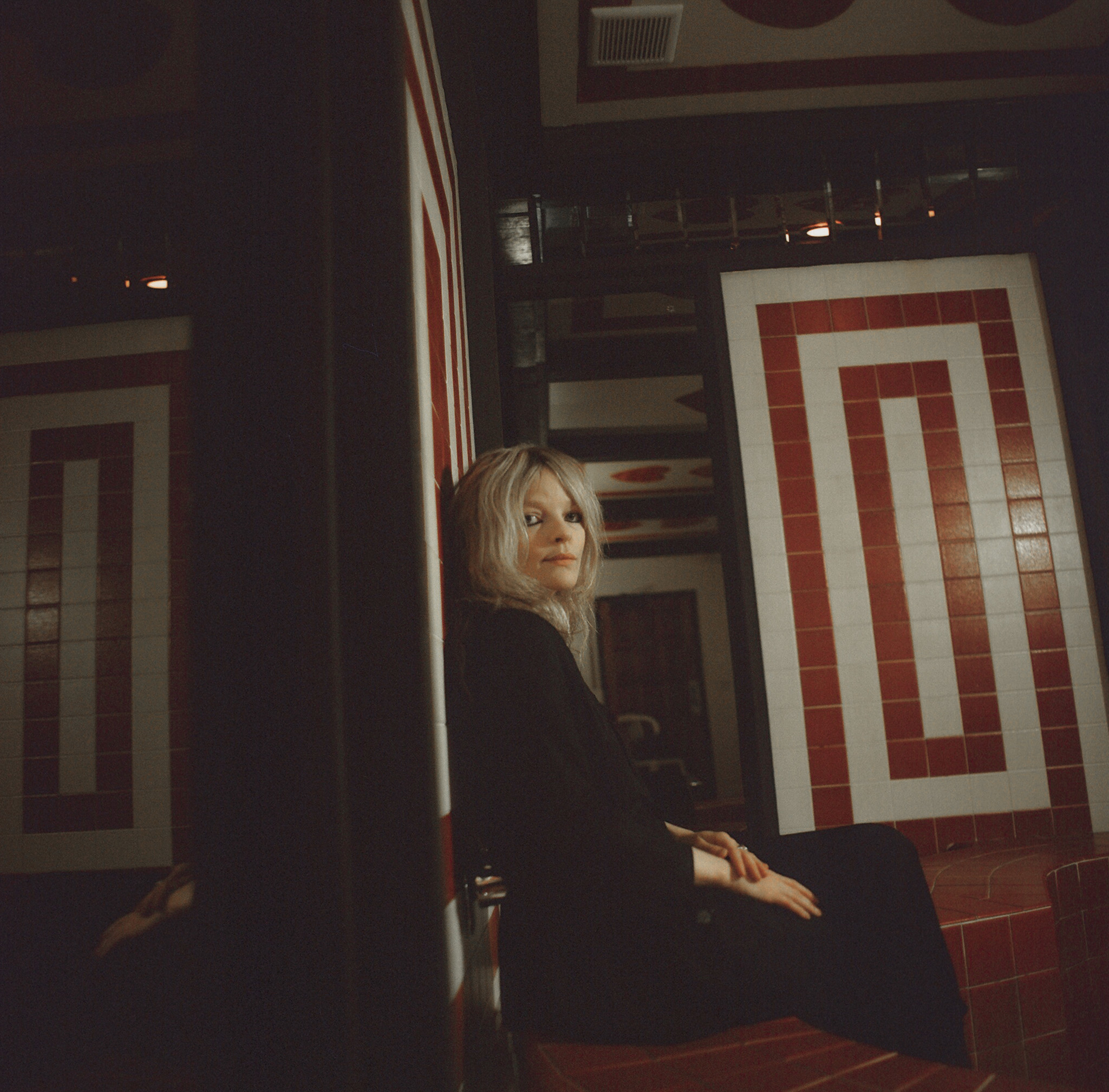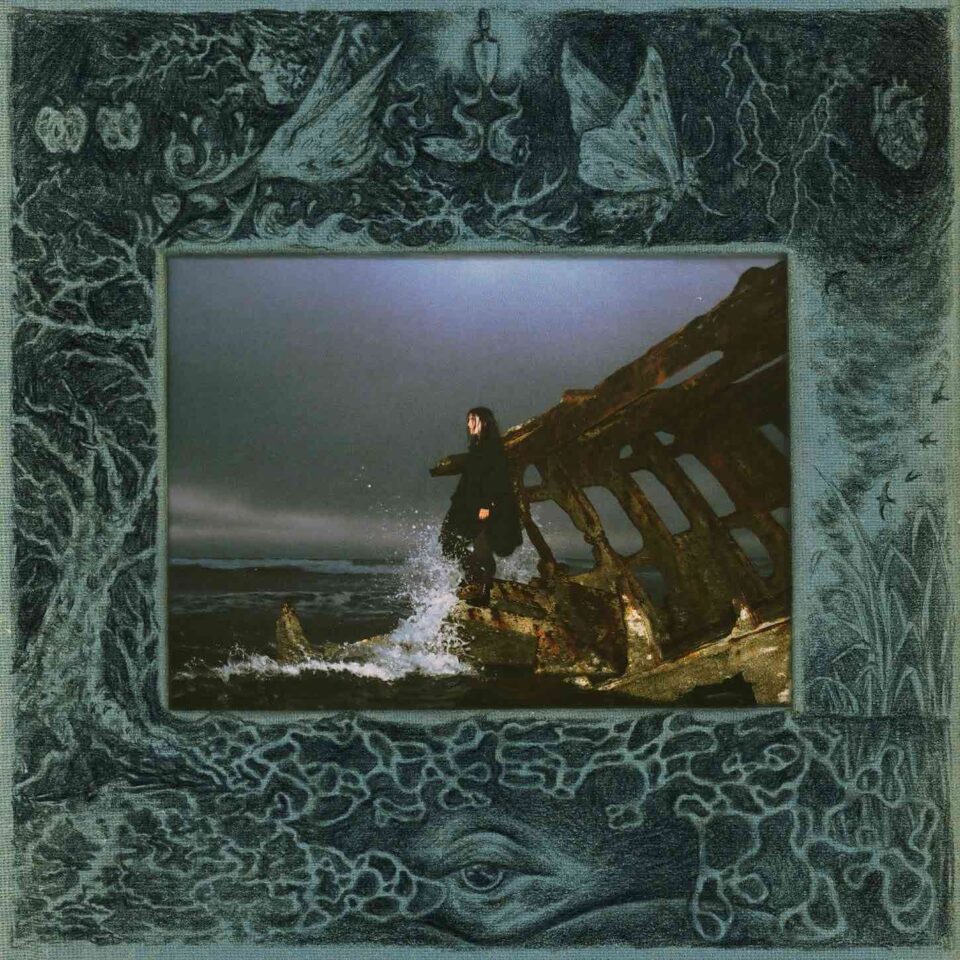Like the vast majority of us, Jessica Pratt is afraid of war. “You’re sort of in this animalistic survival state. I also think the same thing about prison. These are totally rational phobias that I have,” she laughs. “But instances where somebody is reduced to a very primal form of themselves and it’s all about preservation…there’s maybe a loss of self in that moment.” In a small coffee shop in New York’s trendy Tribeca neighborhood, children are screaming and causing a ruckus while the Los Angeles singer-songwriter and I talk about her new album, Quiet Signs.
Pratt is dressed in a sleek black suit with dark eyeliner thickly bordering her lower lids. She’s foxlike, lowering her head intently to listen to my questions. But she also has what could be seen as anxious mannerisms: She picks at pills on her beige gloves before almost every question, and I notice that her patent leather boot is jiggling underneath the table.
Jessica Pratt’s songs are romantic, eerie, and fleeting. Her music sounds the way stained glass windows in a medieval church might if they came to life and began singing modern folk songs. Many of the narratives on Quiet Signs seem to be about introspective perseverance as uncertainty looms. “I don’t wanna find that I’ve been marching under the crueler side of the fight,” she sings on lead single “This Time Around.” I ask about the militant undertones of her lyrics: soldiering on, marching, being caught in an exhausting conflict. “That isn’t a planned wordplay, but I suppose it sounds fairly melodramatic,” she says. “I think I have always been very afraid of the idea of war and being in a situation where you have no control, and there’s, like, imminent danger all around you.”
The nine tracks on her third album aren’t political, at least by popular definition. But they wrestle with complicated emotional affairs, where anxiety and self-doubt can make you feel split in two, one side polarized against the other. “Some of the stuff that I was dealing with in the years prior to and during the writing of this record, I was going through some pretty hardcore personal things,” Pratt admits. “There were times where I definitely felt I was just trudging along through a very bloody battle.”
Consistently, Pratt conquers arduous times by following her instincts. The album’s title serves as a reminder to listen to your intuition, “not begin to self-edit before you begin to even let something develop.” Although she had a strict writing schedule, as a result of flying back and forth between Los Angeles and Brooklyn to make the album, the deadline was once, twice, several times delayed. Pratt says the routine was good for her, but she was also able to trust herself when things weren’t working. “I know enough about myself that if I try to force anything to be a certain way, it sort of winds up feeling a little shallow or artificial. I always have to be a conduit for whatever happens. I guess there’s freedom in that, as well.”
“Some of the stuff that I was dealing with in the years prior to and during the writing of this record, I was going through some pretty hardcore personal things. There were times where I definitely felt I was just trudging along through a very bloody battle.”
The major support from her label Mexican Summer—spending money on flights and recording sessions—was pressure that ended up being necessary to push Pratt into a prime creative state. It was a somewhat loving weight on her shoulders, though she knew she couldn’t afford to let her believers down. This stood in contrast to the recording of her previous album, during which Pratt had a part-time job and didn’t quite believe in herself as a musician. “It was challenging at times, for sure. I feel like I lived with some sense of guilt for the entire process, which is kind of true of my everyday life as well. I felt guilty whenever I wasn’t working on it,” she tells me.
It’s easy to imagine that the moony, sometimes spectre-like vibe of Pratt’s music is her way of keeping a distance from neuroses. Pratt has said many times that she’s an anxious person. But, not only does she feel free when playing music, she enters “a meditative headspace.” It’s where “you kind of disconnect from your immediate reality a little bit, ideally.” Pratt suspends this fantastical reality to her listeners through murmuring vocals, cryptic lyrics, and winding baroque-folk instrumentals.
There was a period—after her release of 2015’s On Your Own Love Again—where Pratt wasn’t writing. In previous interviews, she’s described this time as “scary,” and a difficult headspace to get out of. Demoralization loomed when she was beginning to write Quiet Signs. “I genuinely felt that that was the case at the beginning of this process: ‘Maybe I’m just done. That was my one thing and that’s it.’”
Eventually, thrusting herself into the writing process helped Pratt out of a grim, depressive phase. Her new music unearthed subconscious demons and pushed her to a healthier innovative peak. “I learned a lot from this experience, in that self-doubt is really just a major hindrance. You should try to avoid it as much as you can, but I think it’s kind of impossible,” she smiles. “Next time I will probably take comfort in knowing that I’ll never run out of ideas.” She pauses. “Hopefully. I’ll be realistic about that. I won’t see things as such a catastrophe.” FL







